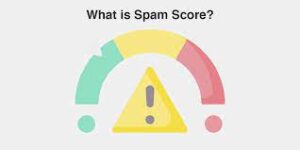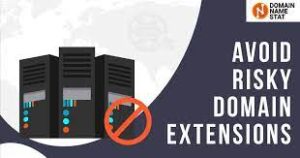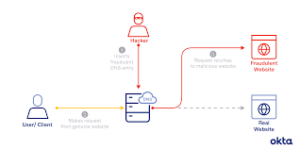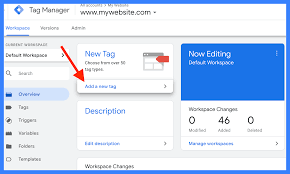Although links have many positive effects on websites and SEO, you have to be careful to avoid spam. A few spam links usually go unnoticed and may not be a cause for worry but if they become too much then you will have problems which include being penalized by search engines. This is part of the reason why the question “what is spam score?” is common among many business owners. In this article, we talk about how to avoid spam scores on your website.
But, firstly, we have to know what is spam score.

What is Spam Score
The spam score is the most important part of a website and it plays important role in ranking on the Google search engine. Spam scores represent the percentage of spam sites and penalized sites connected with your website. If your website spam score is high or the spam score of your website is increased then it results in several disadvantages. An increased spam score does not mean that your website is spam but it represents the percentage of penalized users connected with your site.
Types of Spam Scores:
1. A score of 1%-30% is considered a Low Spam Score.
2. A score of 31%-60% is considered a Medium Spam Score.
3. A score of 61%-100% is considered a High Spam Score.
How to reduce the spam score of a Website?
Spam score has been initially developed by SEO data to measure the quality of the website. It represents the spam score of any site as per the points of spam flags, which live between numerical values 0 to 17. If the spam score of the website goes to 17, then it denotes that Google has blacklisted the website hence your website will not be visible in the search results.
Nine things you can do to avoid your website being seen as spam and potentially hurting your SEO. Here they are:

1. Avoid ‘dodgy’ domain extensions
This is a tricky one if you’ve already bought your domain and built your site on it, but useful to know if you’re choosing one. There are particular top-level domain extensions (these are the .com or .co.UK) that many spam domains use. So if you don’t want to raise a potential red flag it’s best to avoid these if you can.

2. Get HTTPS
If you haven’t already secured your site with HTTPS it’s a good idea to do so. Not only will it help your SEO, but as most spam sites don’t bother with HTTPS, it sends a clear signal to Google that your site is safe.

3. Make sure you add the right pages
A site with only a few pages is a spam score indicator this can be quite a tricky one to avoid for a freelancer or small business, but it’s worth nothing. Many spam sites that are set up for a single purpose have no desire to offer genuine value and have very few pages so a site with too few pages might risk being grouped with them.
If you have a small website for your business, it’s unlikely you’ll have many pages but there are some useful pages to include that spam sites often don’t bother with.

4. Don’t use a long, keyword-rich domain name
When choosing your domain name you have up to 253 characters to play with, but for many reasons least alone memorability and the risk of errors when typing it in it’s not advisable to use them all. Domain name length in itself isn’t counted by Google for SEO, it can count as a spam signal this is because often spam sites will create keyword-driven URLs, rather than a branded domain, which a genuine business is more likely to use.

5. Include numbers, email addresses, or LinkedIn links
If it’s relevant to your business, include your phone number, email address, and/or a link to your LinkedIn company page or profile on your website because these are all things that spam sites rarely have. if you want to send a sign to google that your site is safe and legit, then include some or all of these on it. Another good reason to include a contact us page. This is especially important if you have a local business and want to boost your SEO.

6. Use links wisely
links are a vital part of your SEO, and you must get them right. From a spam signals perspective here are three things you need to be aware of:
- Your external links: when linking to other websites, make sure you link naturally. Spam sites will be at the extreme ends of the spectrum, with either an abnormally high or low number of external links for the size of their site or the quantity of content. Rather helpfully there’s no magic ratio, just use your common sense about what a ‘natural’ amount might be for your site.
- The number of domains you link to: spam sites are more likely to link to an abnormally high or low number of external domains. So make sure you link to a range of different websites.
- The quality of your links: if you’re going to link to another website, it makes sense to choose high-quality websites. By association, you’ll look better to Google so make sure you link to trustworthy websites and choose the best possible link for the context. By this we mean choose links that are relevant to the subject of your content and the words you are linking from to the best possible sources.

7. Avoid ‘poison’ words
Some words are a red flag for spam sites to search engines. So if you can do it’s a good idea to avoid them on your website both in your web copy and, in particular, your anchor text these are the words you use to link to another page on your website or to an external site. It’s not hard to guess what the poison words might be just think about the kind of topics that dodgy sites might be about, such as pharmaceuticals, content, gaming, adult, etc.

8. Get Google Tag Manager
If you don’t already have Google Tag Manager set up on your website, it’s a good idea to do so. It’s rarely present on spam sites, so it’s a signal that yours might be in that group if you don’t have it. You can find out how to set up and install Google Tag Manager here.

Conclusion
Using a spam score is just one of the ways to keep your website from the top. If combined with other techniques you’ll be able to maintain a higher ranking and make more sales. A company dedicated to helping you can achieve that is the best company to work with.
You can trust them to lead you in the right direction and do everything within their power to avoid falling. Backlink boss is such a company and is the best to talk to about backlinking.



